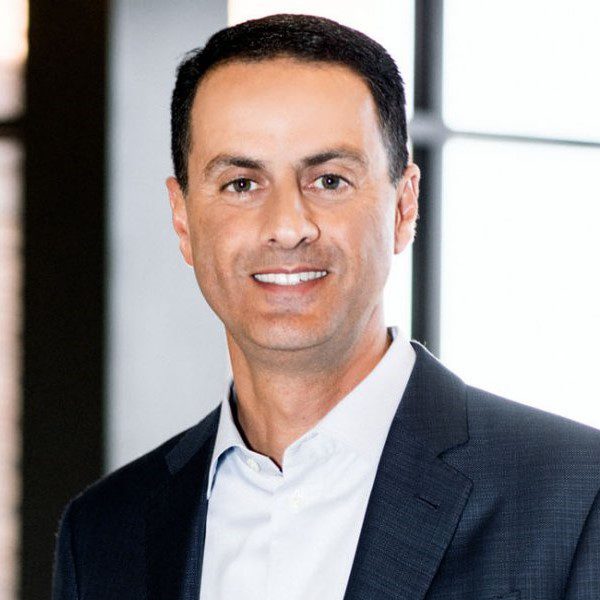AbbVie said Thursday that its highly anticipated acquisition of Cerevel Therapeutics is slated to close soon. It also reported higher-than-anticipated second-quarter revenues.
The $8.7 billion deal, announced last December, is expected to be a boon to AbbVie’s neuroscience pipeline and give it a chance to compete with Bristol Myers Squibb in schizophrenia. Cerevel’s pipeline would also give AbbVie a slate of experimental medicines for Parkinson’s disease, Alzheimer’s psychosis and epilepsy, among others.
The deal could close “as early as next week,” AbbVie’s recently installed CEO Rob Michael said on Thursday morning’s Q2 earnings call. The deal was slated to complete in mid-2024, AbbVie has previously said, and rumors circulated this summer that the FTC could take a stance against the acquisition as part of its tightening grip on the industry.
Clik here to view.
 Rob Michael
Rob Michael“We’ve made very good progress with the FTC and have certified substantial compliance to their second request,” Michael said. “No divestments are expected.”
In mid-February, the companies received a so-called second request from the FTC, asking for more information on the deal. AbbVie already markets some neuroscience medications, including blockbuster treatment Vraylar, but leadership has expressed confidence from the beginning that there would be no regulatory hurdles.
Its neuroscience business accounts for $2.16 billion of AbbVie’s overall $14.46 billion in global net revenues in Q2. Cerevel wouldn’t immediately contribute revenue to AbbVie as it’s still in late-stage testing in Parkinson’s disease and schizophrenia.
With its beat on revenues, AbbVie upped its full-year adjusted earnings per share guidance by 10 cents at a new range of $10.71 to $10.91. AbbVie’s shares $ABBV were up about 4.5% in Thursday morning trading as Skyrizi and Rinvoq sales came in above expectations, as did its Humira franchise, which is in its second year of facing biosimilar competition.
Update on Alzheimer’s R&D
Clik here to view.
 Roopal Thakkar
Roopal ThakkarMeanwhile, AbbVie said it stopped development of a monotherapy version of its anti-amyloid monoclonal antibody. After taking an interim look at Phase 2 data on ABBV-916, AbbVie saw that the “emerging efficacy and safety profile in this study is similar to what has been demonstrated by approved agents,” according to new chief scientific officer Roopal Thakkar. Biogen and Eisai market Leqembi and Eli Lilly recently received FDA approval for Kisunla.
“However, given the evolving landscape, we do not believe ‘916 as a monotherapy treatment will be sufficiently differentiated from other emerging therapies,” Thakkar said on the earnings call.
Alzheimer’s experts have said combination methods could be a way forward for the field, in addition to testing methods other than amyloid. AbbVie also has an SV2A modulator known as ABBV-552 in Phase 2 for Alzheimer’s and a partnered TREM2 antibody in Phase 2 with Alector.
An AbbVie spokesperson confirmed to Endpoints News that the experimental drug has not been fully cut from the pipeline and that there were no other R&D drug culls.
Commentary on IRA, presidential election
AbbVie leadership was asked about the upcoming US presidential election at the end of the earnings call, leading Michael to discuss the Inflation Reduction Act. AbbVie’s Pharmacyclics subsidiary markets one of the first 10 drugs selected for Medicare price negotiation. The drug, its Johnson & Johnson-partnered cancer medicine Imbruvica, is already on the decline, with Q2 revenues slipping 8.2% year over year to $833 million.
“As it relates to the election, it’s hard to handicap it, whether Democrat or Republican,” Michael said.
He said the company still expects to “deliver on our long-term outlook.”
AbbVie is “certainly in favor of the Part D benefit redesign that helps address patient out-of-pocket burden,” Michael said on the earnings call, “but the price-setting provisions in the IRA will certainly harm long-term innovation in our industry, so we are hopeful that if it’s a new administration or the current administration, that they’ll reassess those provisions that are harmful for long-term patient care in the US. It clearly takes away the incentive to launch in later lines of smaller patient populations, which is really a very unfortunate negative outcome for the legislation.”